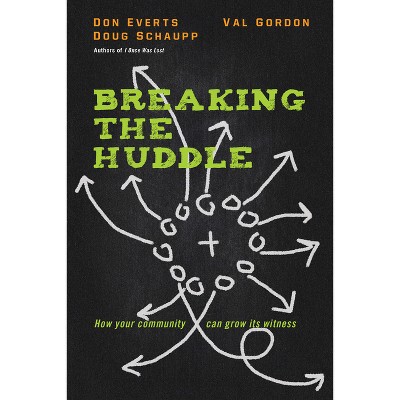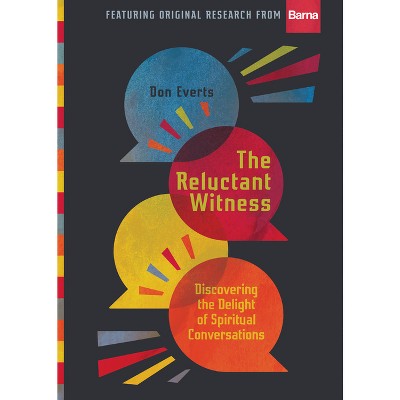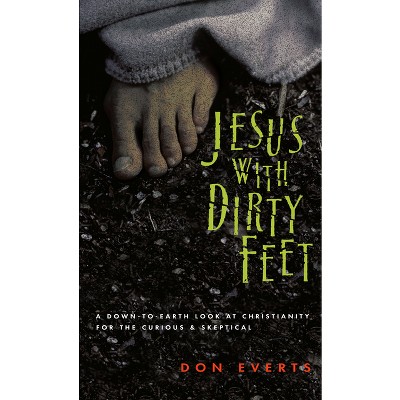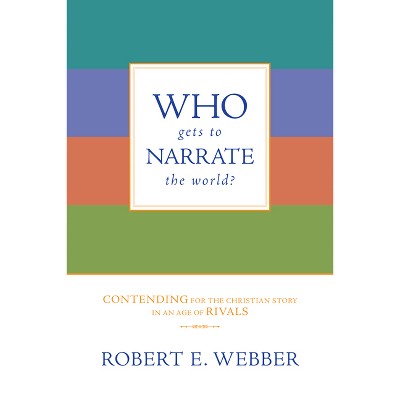Sponsored

I Once Was Lost - by Don Everts & Doug Schaupp (Paperback)
In Stock
Sponsored
About this item
Highlights
- Don Everts and Doug Schaupp tell the stories of postmodern people who have come to follow Jesus.
- About the Author: Don Everts is a poet, preacher and writer who has spent a lot of time on college campuses playing hacky sack and eating cheap pizza.
- 134 Pages
- Religion + Beliefs, Christian Ministry
Description
About the Book
Everts and Schaupp tell the stories of postmodern people who have come to follow Jesus. They describe the factors that influence how people shift in their perspectives and provide practical tools to help people enter the kingdom.Book Synopsis
Don Everts and Doug Schaupp tell the stories of postmodern people who have come to follow Jesus. They describe the factors that influence how people shift in their perspectives and become open to the Gospel. They provide practical tools to help people enter the kingdom, as well as guidelines for how new believers can live out their Christian faith.
Review Quotes
". . .immensely helpful without becoming formulaic. . .the book carefully travels the tightrope between the competing programmatic and relational paradigms of evangelism."
"Everts, Schaupp . . . clearly identify the epistemological dissonance expressed by the skeptic and the effect this dissonance has on the psychology of conversion in the twenty-first century. Having listened to the testimonies of postmodern skeptics who have walked the path to faith, these authors offer us a coherent framework for both understanding the modern convert and accompanying him out of the world and into the kingdom."
"Many in college ministry will find this book fresh and challenging. Others will see in it principles and observations in which they already function comfortably. Either way, I Once Was Lost provides an apt reminder that what it means to creatively and respectfully love those whom God loves must change over time."
"Marked by a humility and maturity in desiring to make change in the way Christian become fishers of men, I Once Was Lost is a practical tool. With wise insights and healthy encouragement, Christians are inspired to take care in finding the answers and allow time, faith and prayer to be what leads others as well."
"Particularly helpful is their discussion of how to provoke curiosity about the gospel. Although many Christians might be comfortable giving answers, they show that Jesus was a master of asking good questions."
"There is a lot of practical advice to be found here on how best to win postmodern people for Christ."
"This book is a gem worth being found."
"This easy-flowing book tells many stories of students as they cross each threshold and gives practical tips on how to support people in each step."
"While the five thresholds give us bearings in a time of transition, Everts and Schaupp remind us that no model should be held too closely-as evangelism is finally determined by the individual before us."
I would highly recommend the book as insightful, brief, hopeful and stimulating. College students will be loved better by people who read this book.
About the Author
Don Everts is a poet, preacher and writer who has spent a lot of time on college campuses playing hacky sack and eating cheap pizza. His books include Jesus with Dirty Feet, God in the Flesh, Getting Your Feet Dirty and the One Guy's Head series of postmodern apologetics.
Doug Schaupp is regional director for InterVarsity Christian Fellowship's campus ministries in Southern California. He is a frequent speaker on postmodern evangelism, racial issues and leadership development. He is the coauthor of Being White as well as a graduate of Fuller Theological Seminary and lives in Los Angeles.
Shipping details
Return details
Trending Non-Fiction











